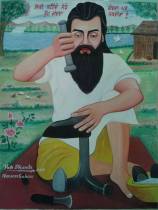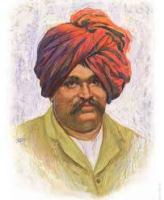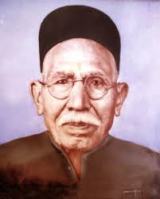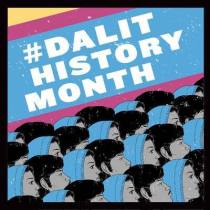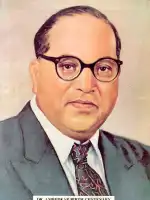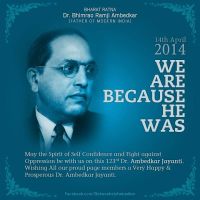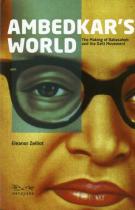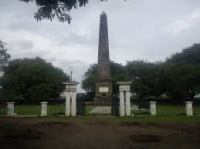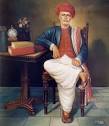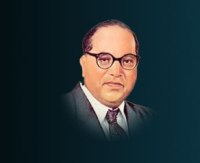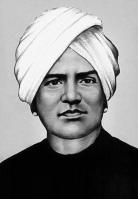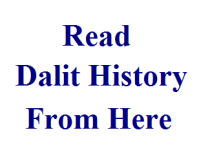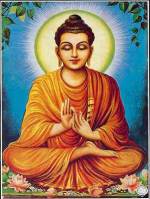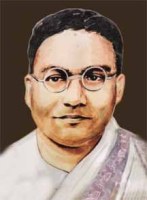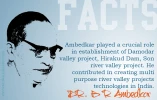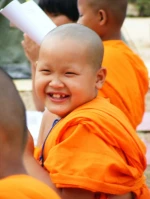27 January 1919: Dr. Ambedkar submitted a memorandum and gave evidence before the Southborough Commission. The memorandum was attached as a supplementary in the commissions report.
In the examination of Dr. Ambedkar‘s views the commission found that he had unmistakenly presented the division of Hindu society into touchables and untouchables. If a particular community had a majority of votes in a constituency, there was no need for that community to have separate communal representation. If the untouchables had a majority of votes in a particular constituency, he would not ask for communal representation. It was because they were in a minority and would always remain so on a uniform franchise that he asked for separate representation. He was opposed to any system under which the representatives of the depressed classes were drawn from other classes. His justification for asking for a low qualification for franchise was that as a result of being untouchable, the untouchables had no property; they could not trade because they could not find customers. He remembered a case in which a Mahar caste woman was taken to the police court for selling watermelons. In the mills in the Bombay Presidency the untouchables were not yet allowed to work in the weaving department: in one case an untouchable did work in the weaving department of a mill saying that he was a Mohammedan, and when found out, he was severely beaten. The definition of an “untouchable” as a person, who would cause pollution by his touch, was a satisfactory one for electoral purposes. It was not the case that some castes were considered to be untouchable in some districts and touchable in others.
In the whole Bombay Presidency there was one B.A. and 6 or 7 matriculates among the depressed classes. The proportion of those who were literate in English was very small, but not much smaller than in the case of the backward classes. The depressed classes especially the Mahars and the Chamars, were fit to exercise the vote. He would also give them the votes by way of education. He could find at least 25 or more men amongst them who had passed the 6th or the 7th Standards of a High School, and, although the number was not large, the 9 seats which he suggested for the depressed classes could be filled from amongst them. Such a candidate in practical matters would be as good as a graduate although the latter might be able to express himself better.
He suggested large constituencies for the depressed classes’; if such large constituencies had been accepted for the Mohammedans he did not see why they were not practicable in the case of the depressed classes.
In order to obtain the required number of seats for the depressed classes he would reduce the number of seats suggested by Government for the Mohammedans, from 38 to 10. This reduction was justifiable, as on the population basis the Mohammedans were only entitled to 20 per cent of the seats. He did not consider the Congress League Pact as binding on all.
In the evidence he piointed out that Untouchables were persons to whom certain rights of citizenship had been denied. For instance, it was the right of every citizen to walk down the street, and if a man were prevented from doing so, even temporarily, it was an infringement of his right. Whether a man was prevented from exercising his rights by law or social custom, made very little difference to him. Government had recognised custom and persons belonging to the untouchable classes were not employed in Government service.
His view was that British rule in India was meant to provide equal opportunities for all, and that in transferring a large share of the power to popular assemblies, arrangements should be made whereby the hardships and disabilities entailed by the social system should not be reproduced and perpetuated in political institutions. As regards the exact position at present, he admitted that, for instance, at the Parel school which was meant for the depressed classes, there were many higher-caste pupils, who came there because it was a good school. Similarly as a professor he, being a member of a depressed class, had pupils of all classes and found no difficulty in dealing with his higher caste pupils. If the untouchable classes were recognized by Government by the grant of seats, their status would be raised and their powers would be stimulated. He was not very particular about the number of their seats; all he wanted was something adequate.






